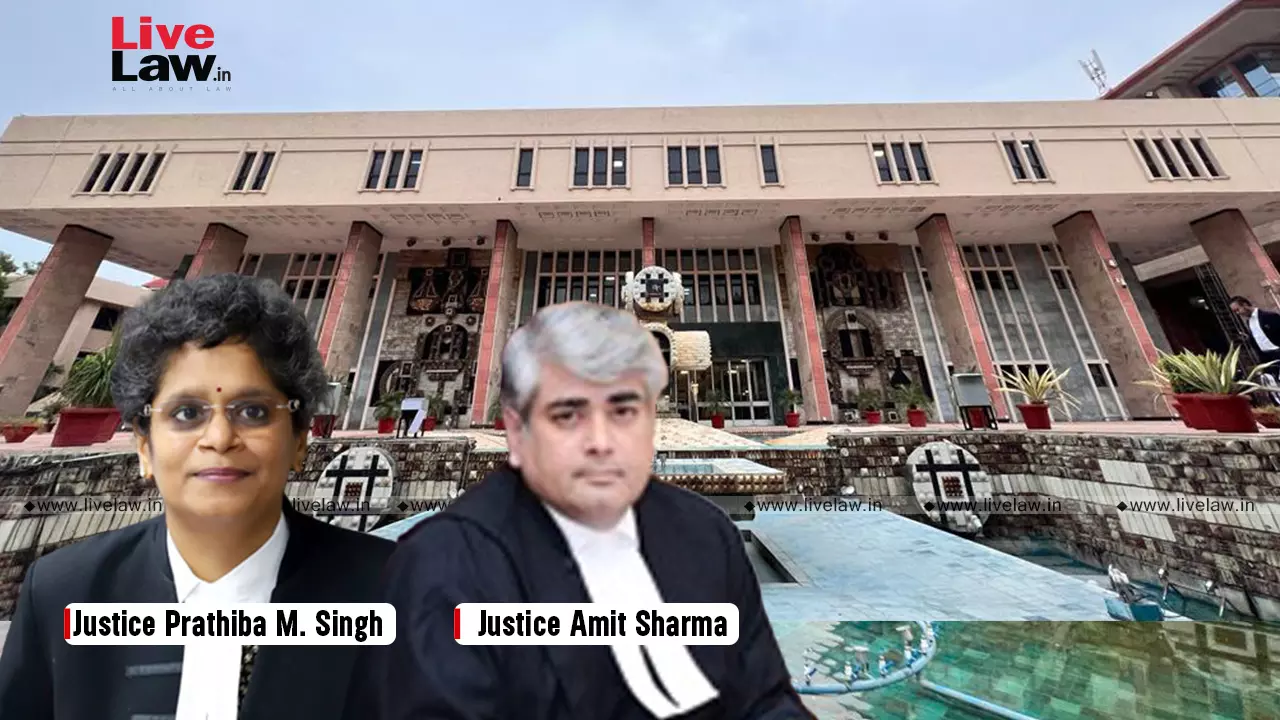- Home
- /
- High Courts
- /
- Delhi High Court
- /
- Human Rights Commissions Not...
Human Rights Commissions Not 'Toothless Tigers', Their Recommendations Are Binding: Delhi High Court
Nupur Thapliyal
28 Jan 2025 10:36 PM IST
The Delhi High Court has ruled that the recommendations of the State or National Human Rights Commissions are binding in nature and the purpose of enactment of the Human Rights Act would be nullified if they are held to be mere recommendatory bodies.A division bench comprising Justice Prathiba M Singh and Justice Amit Sharma said that holding that Human Rights Commissions can only...
The Delhi High Court has ruled that the recommendations of the State or National Human Rights Commissions are binding in nature and the purpose of enactment of the Human Rights Act would be nullified if they are held to be mere recommendatory bodies.
A division bench comprising Justice Prathiba M Singh and Justice Amit Sharma said that holding that Human Rights Commissions can only make recommendations which are not binding would render them completely toothless and nullify the object of India ratifying the Universal Declaration of Human Rights.
“If Governments are aggrieved, they are free to challenge the orders of State Commissions and NHRC. But such inquiries and reports cannot be simply ignored. Human Rights Commissions are not to be 'toothless tigers' but have to be 'fierce defenders' safeguarding the most basic right of humans i.e., the right to live without fear and to live with dignity,” the Court said.
The Bench made the observations while dealing with a plea moved by a father alleging that his son lost his life in a fake encounter by the Delhi Police in 2006.
The case related to an alleged fake encounter by Delhi Police's Special Cell where five members of the a gang had died and one member had escaped. It was averred that the gang was involved in more than 70 cases of murder, attempt to murder, dacoity, robbery, rape etc.
The father sought an impartial CBI inquiry into the alleged killings and further compensation of Rs. 5 lakh to the legal heirs of all the deceased gang members, including the legal heirs of the member who was stated to be missing.
The DM had found various lacunae in the investigation conducted by the police and recommended a CBI inquiry.
After perusing the report of the DM, the Lieutenant Governor was of the opinion that there was lack of corroboration and therefore did not recommend a CBI inquiry. The decision of the LG was approved by the Ministry of Home Affairs in February 2013.
In 2014, the NHRC had expressed surprise and as to how the MHA had considered the encounter to be authentic and questioned the Ministry as to how monetary compensation will act as an. incentive to the criminals. Accordingly, the NHRC had then directed payments of sum of Rs.5 lakhs to the next of kin of all five deceased persons.
The father moved the writ petition in 2015 as no CBI inquiry was conducted in the matter and even the compensation was not given to the legal heirs of the deceased person as directed by the NHRC.
Allowing the plea, the Court rejected the stand of the Delhi Police that in each and every case, the NHRC ought to be forced to approach the Court for implementation of its own decisions.
The NHRC is not meant to become a litigant before Courts, it said.
Observing that human rights are not ordinary rights, the Court said that Commissions under the Human rights Act are meant to look into any infractions and exercise powers under the Human Rights Act.
It said that the Reports and Recommendations of Human Rights Commissions need to be treated with seriousness and not rendered edentulous or pointless.
The Bench concluded that an Inquiry by CBI was not warranted in the present case and upheld the decision of the LG. However, it said that that the compensation, as awarded by the NHRC in 2014, deserved to be paid.
“Since there was no challenge to the direction given by the NHRC, which in the opinion of this Court, is binding on the government, it is directed that the compensation shall be released by the MHA for a sum of Rs.5 lakhs along with simple interest @ 18% within a period of three months,” the Court said.
It added: “In addition, despite recommendations of the NHRC more than a decade ago on 5th February, 2014, the amount has not been paid. Accordingly, litigation costs of Rs.1 lakh are also awarded to the Petitioners.”
Title: KIRAN SINGH v. NATIONAL HUMAN RIGHTS COMMISSION & ORS.
Citation: 2025 LiveLaw (Del) 106

